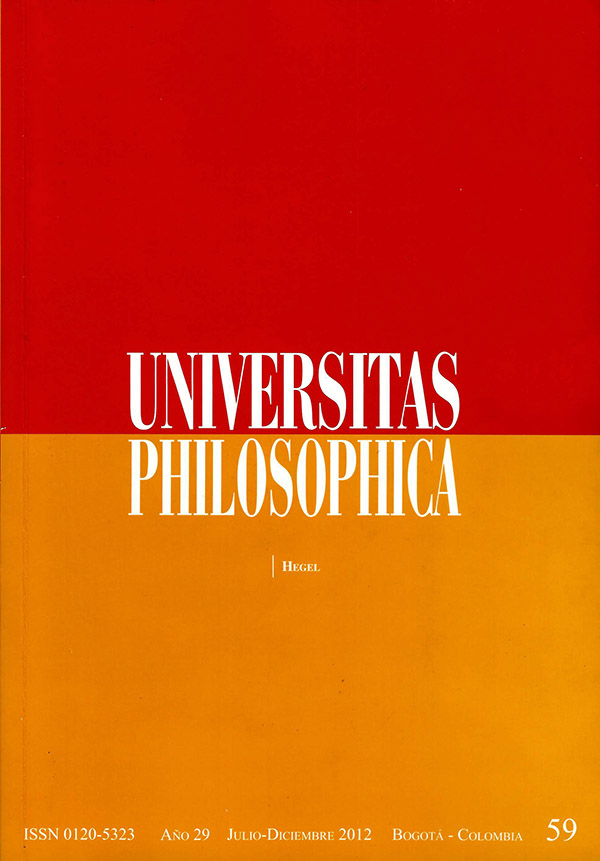Abstract
The law of the heart and the madness of infatuation [Das Gesetz des Herzens und der Wahnsinn des Eigendünkels] is one of the several figures of consciousness we meet with in Hegel’s Phenomenology of Spirit. In this philosophical work can be observed different possibilities of the individualist one, who relying on the beauty and virtue of his heart, pretends to change a world opposed to him, and meant as hypocrite and wicked. In the process of change, the virtuous heart becomes a revolutionary one or a terrorist one practicing the law of his heart, but reversing it and causing the opposite of what was intended, namely, far more terror and violence.
This journal is registered under a Creative Commons Attribution 4.0 International Public License. Thus, this work may be reproduced, distributed, and publicly shared in digital format, as long as the names of the authors and Pontificia Universidad Javeriana are acknowledged. Others are allowed to quote, adapt, transform, auto-archive, republish, and create based on this material, for any purpose (even commercial ones), provided the authorship is duly acknowledged, a link to the original work is provided, and it is specified if changes have been made. Pontificia Universidad Javeriana does not hold the rights of published works and the authors are solely responsible for the contents of their works; they keep the moral, intellectual, privacy, and publicity rights.
Approving the intervention of the work (review, copy-editing, translation, layout) and the following outreach, are granted through an use license and not through an assignment of rights. This means the journal and Pontificia Universidad Javeriana cannot be held responsible for any ethical malpractice by the authors. As a consequence of the protection granted by the use license, the journal is not required to publish recantations or modify information already published, unless the errata stems from the editorial management process. Publishing contents in this journal does not generate royalties for contributors.


